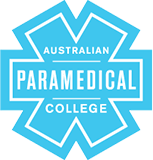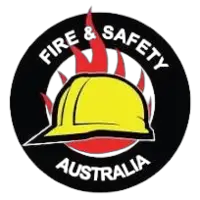
How do I become a emergency services officer (eso)?
Certificate IV in Emergency Response Coordination
- There are no mandated entry requirements.
 Parabellum International Training
Parabellum International Training
Diploma of Emergency Health Care
- There are no mandated entry requirements.
 Australian Paramedical College
Australian Paramedical College
Professional Certificate of Competency in Earthing and Lightning Protection
- There are no mandated entry requirements.
 Engineering Institute of Technology
Engineering Institute of Technology
Certificate II in Medical Service First Response
- There are no mandated entry requirements.







Graduate Certificate in Emergency and Disaster Management
- There are no mandated entry requirements.


Certificate II in Public Safety (Firefighting and Emergency Operations)
- There are no mandated entry requirements.
 Fire And Safety Australia
Fire And Safety Australia
Related occupations
Emergency Medical Technician
An Emergency Medical Technician (EMT) provides urgent care, assesses patients, and stabilises them before transport to medical facilities.
Aviation Medic
An Aviation Medic provides emergency medical care during air travel, stabilising patients in remote areas and responding to various situations.
Patient Transport Officer
A Patient Transport Officer safely transfers non-emergency patients between locations, requiring communication skills, physical fitness, and procedural accuracy.
Industrial Medic
An Industrial Medic delivers emergency healthcare at remote work sites, responding to accidents, managing injuries, and coordinating patient transport.
Australian Defence Force Medic
An Australian Defence Force Medic provides medical care in emergencies, managing multiple casualties while staying calm under pressure.
Emergency Medical Dispatcher
An Emergency Medical Dispatcher answers emergency calls, prioritises responses, and provides advice while paramedics are en route.
Volunteer Ambulance Driver
A Volunteer Ambulance Driver transports patients in non-emergencies, requiring flexibility, strong communication skills, and adherence to procedures.
Ambulance Service Paramedic
An Ambulance Service Paramedic provides emergency care, responds to 000 calls, treats patients on-site, and must stay calm under pressure with strong decision-making skills.
Paramedic
Paramedics respond to emergencies, providing on-site treatment and transport, requiring quick thinking, fitness, and resilience to trauma.
Critical Care Paramedic
Critical Care Paramedics are highly trained responders who manage severe medical emergencies, requiring quick thinking and advanced skills.
Intensive Care Paramedic
Intensive Care Paramedics are expert responders who manage severe emergencies, performing advanced procedures and supervising junior staff.
Emergency Response Specialist
Emergency Response Specialists manage critical incidents, ensuring community safety through emergency plans, risk assessments, and training.
Flight Paramedic
A Flight Paramedic provides advanced medical care during air transport, administering treatments and coordinating with teams to ensure patient safety.
Ambulance Transport Attendant
An Ambulance Transport Attendant transports patients safely, ensuring comfort, monitoring their condition, and communicating effectively with healthcare teams.4o mini
Common questions
How much does an Emergency Services Officer earn?
In Australia, a full time Emergency Services Officer generally earns $1,500 per week ($78,000 annual salary) before tax. This is a median figure for full-time employees and should be considered a guide only. As you gain more experience you can expect a potentially higher salary than people who are new to the industry.
What are the job opportunities for an Emergency Services Officer?
The emergency response sector has seen a strong increase in employment numbers over the last five years. There are currently 19,700 people working in this field in Australia and many of them specialise as an Emergency Services Officer. Emergency Services Officers may find work across all regions of Australia.
Source: Australian Government Labour Market Insights
How do I become an Emergency Services Officer?
If a career as an Emergency Services Officer interests you, consider enrolling in a Diploma of Paramedical Science. This course will prepare you for an emergency response role with subjects covering basic life support and transport of patients to a medical facility.
Further reading


Do I need a Certificate IV In Work Health and Safety?
22nd October 2019)

